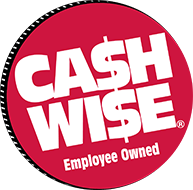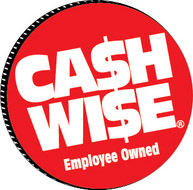Intermittent Fasting
For a dietitian (and soon-to-be dietitians) it’s important to stay up to date with nutrition trends to be able to answer client’s questions. It can be quite the race trying to keep up with the latest diet fads. Seems like every week there’s a new strategy for eating, and it feels like you’re running a marathon at the pace of a 50m sprint. You finally figure out one diet, then another pops up and you’re back to the beginning – pretty soon you’re out of breath and need a snack. Maybe a nap, too.
Navigating the pros and cons and separating fact from fiction on the Internet can be difficult. Unfortunately, even articles that provide scientific references many times cherry pick information from research to fit their articles. This makes it that much harder to know what to believe. Lucky for you, dietetics is an evidence-based profession, and we are taught how to read and interpret scientific literature so you don’t have to!
So, let’s get to the scientific facts you need to know about intermittent fasting.
What is it?
Intermittent fasting is the practice of abstaining from food or drink for an extended period of time, whether it be overnight, during the day, or a number of days. It’s a pretty straightforward concept. Essentially, you have a period of time daily or weekly in which you do not consume any caloric intake (water is still allowed during fasting periods). There are different methods to this, so there are different variations of this style of dieting. Fasting has been a religious practice for thousands of years, but as of recently has caught media attention as a diet style for weight loss.
Intermittent fasting has a wonderful eat whatever the heck you want policy, as long as you don’t eat during your fasting period. This freedom to choose the foods you like is enticing, I totally get it.
There are different types of fasting strategies:
- Based on time – your fasting period is an extended period of time daily, most likely just an extended nightly fast that we all do while we sleep. Just think of it as once you wake up you don’t eat until lunch time.
- Based on days – your fasting period is a whole day, and you alternate days in which you fast.
- Based on calories – this type allows you to eat every day, but you have a severe caloric restriction on specific days with no calorie restriction on the others.
These are examples of a few, but there are definitely other variations.
What does Science say?
Science has mixed thoughts and, as with many fad diet trends, a serious lack of long-term trials to fully assess if intermittent fasting is beneficial. As of right now, in healthy persons, there’s no harm physically or mentally to intermittent fasting, and some studies have shown some weight loss in these groups. However, there has been no conclusive evidence showing intermittent fasting provides a superior amount of weight loss when compared to typical calorie restriction1. There is limited research as well on this diet and whether it can help with prevention of chronic diseases like heart disease and diabetes2. Also, much of the research available to dictate how fasting affects metabolism is done in mice or rats. While the research from these studies shows some promise, it is only a starting point and we cannot base conclusions off animal studies.
Reducing calories is the main driver behind intermittent fasting and how it allows some people to lose weight. Cutting out a meal a day allows some folks to reduce that many more calories. Hello weight loss! The science is inconclusive on how fasting impacts our hunger cues, so it might either make you ravenous or not change your hunger at all. But, if increased hunger happens and you eat more at your other meals, your calorie deficit is gone.
All in all…
We would not recommend intermittent fasting based on the fact that we just don’t know how intermittent fasting truly works on the body. There is no scientific research to support the theory that it’s more beneficial than traditional calorie restriction and there’s just not enough historical research to know how it affects us long term. Maybe when we have more definitive human research we can consider this as a more viable option, but for now, eating a balanced diet and reducing calories is the approach we recommend for weight loss! And of course, include physical activity for a well balanced lifestyle.
Wishing you a happy & healthy new year,
Kayla Wenner
This article was written by Kayla Wenner, Dietetics Student from the University of Minnesota, Twin Cities. This article was reviewed and approved by the team of Coborn’s Registered Dietitians.
References:
- Patterson RE, Sears DD. Metabolic Effects of Intermittent Fasting. Annu Rev Nutr. 2017; 37: 371-393.
- Barnosky AR, Hoddy KK, Unterman TG, Varady KA. Intermittent fasting vs daily calorie restriction for type 2 diabetes prevention: a review of human findings. Transl Res. Oct 2014; 164(4): 302-311.
- Ganesan K, Habboush Y, Sultan S. Intermittent Fasting: The Choice for a Healthier Lifestyle. Cureus. July 2018; 10(7): e2947.



























